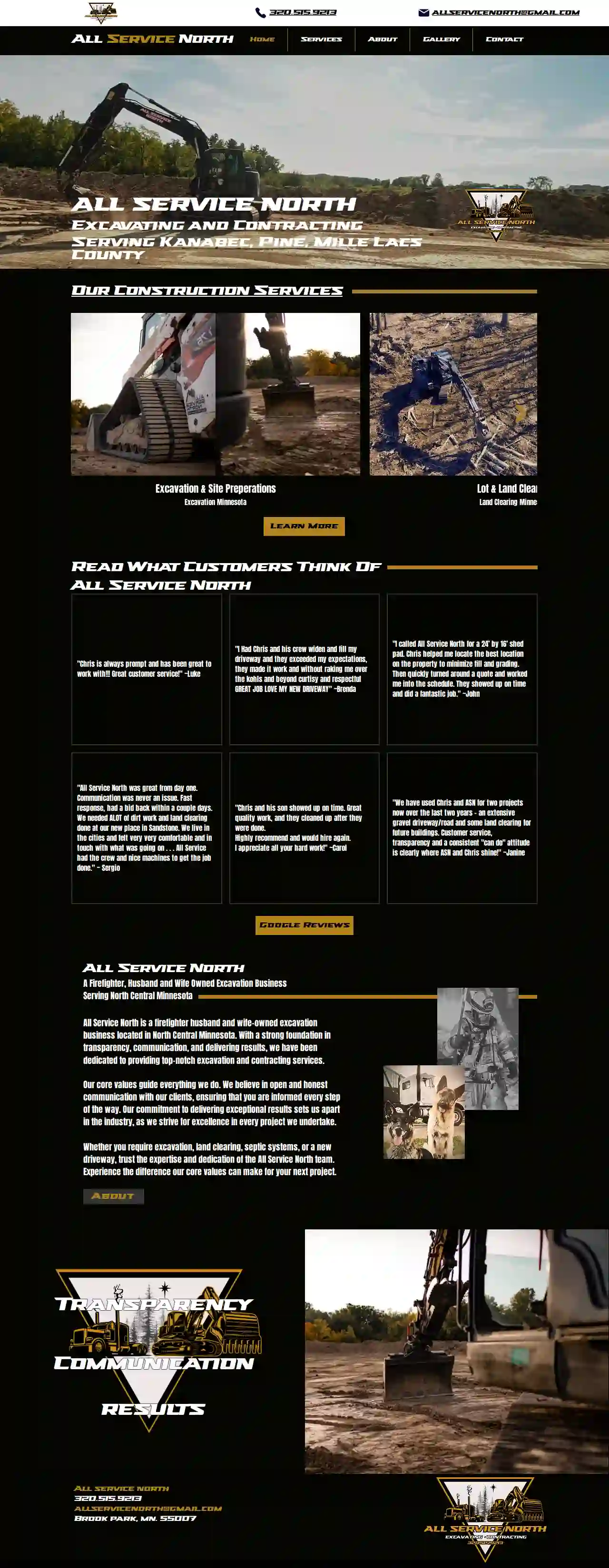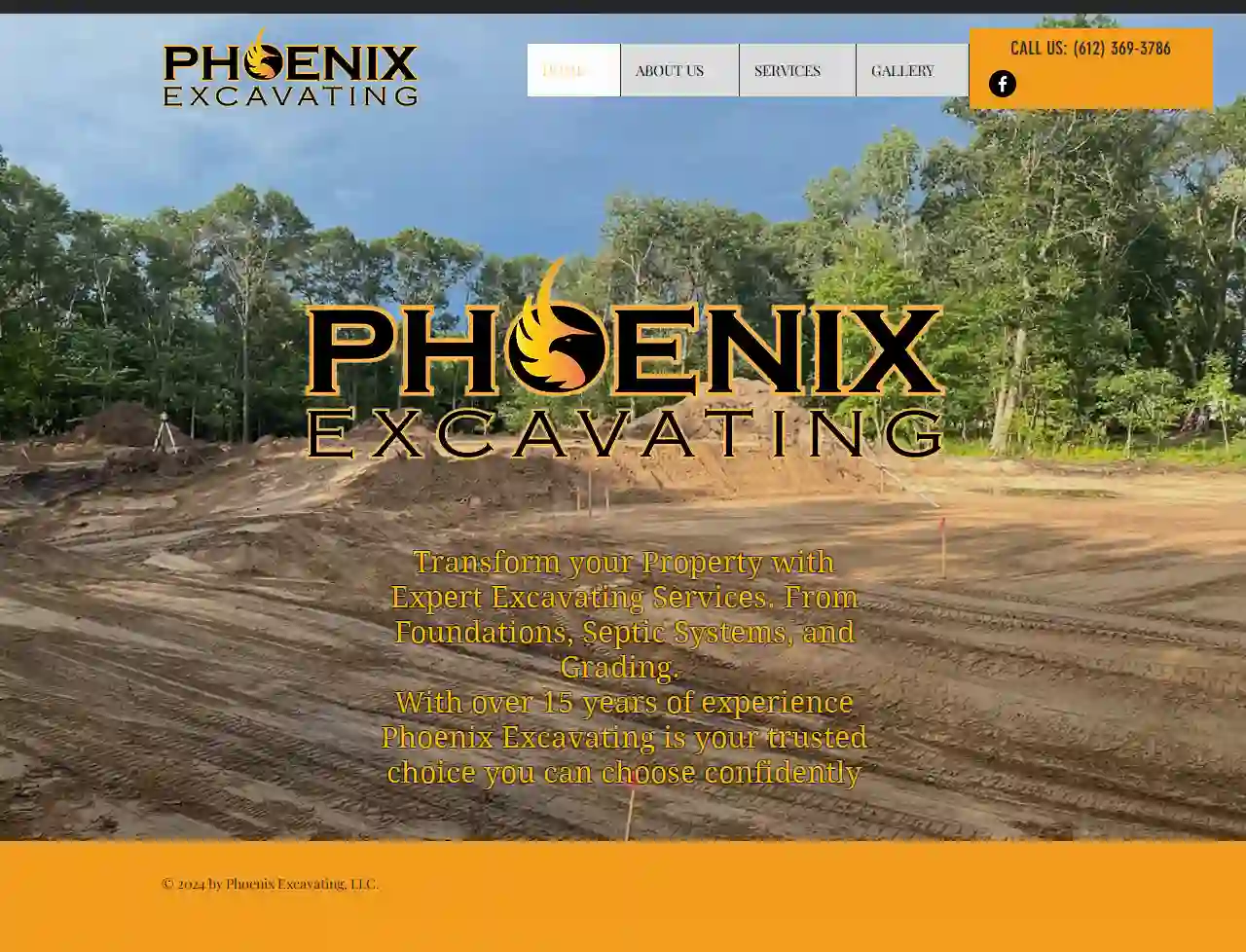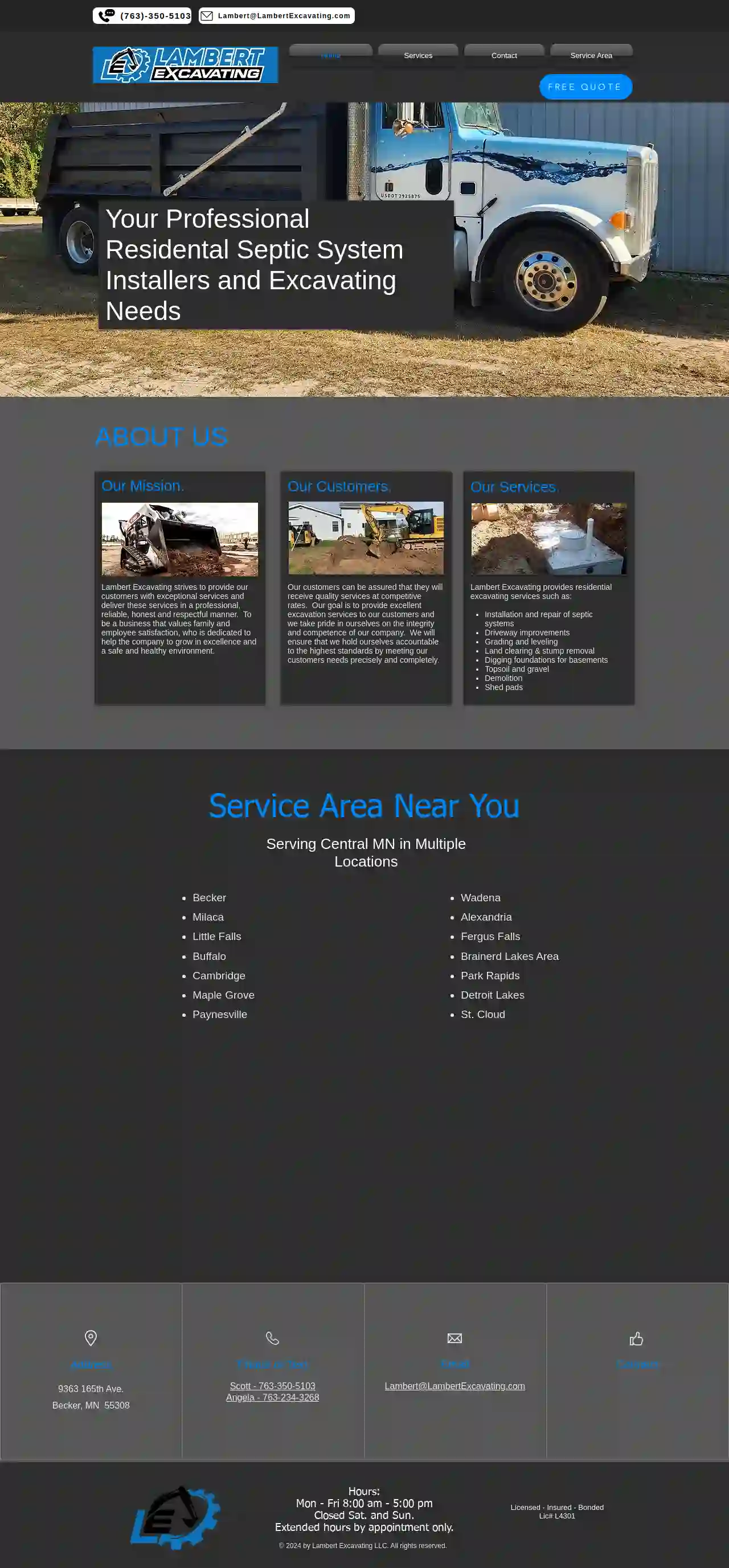Excavation Contractors Minneapolis
Find the best Excavation Company Near Me in Minneapolis
Receive up to 3 Excavation Services quotes for your project today! Compare profiles, reviews, accreditations, portfolio, etc... and choose the best deal.

All Service North - Excavating, Grading and Septic
542 reviewsBrook Park, 55007, USAll Service North A Firefighter, Husband and Wife Owned Excavation Business Serving North Central Minnesota All Service North is a firefighter husband and wife-owned excavation business located in North Central Minnesota. With a strong foundation in transparency, communication, and delivering results, we have been dedicated to providing top-notch excavation and contracting services. Our core values guide everything we do. We believe in open and honest communication with our clients, ensuring that you are informed every step of the way. Our commitment to delivering exceptional results sets us apart in the industry, as we strive for excellence in every project we undertake. Whether you require excavation, land clearing, septic systems, or a new driveway, trust the expertise and dedication of the All Service North team. Experience the difference our core values can make for your next project.
- Services
- Why Us?
- Testimonials
- Gallery
Get Quote
Phoenix Excavating
51 reviewsMinneapolis, USTransform your Property with Expert Excavating Services. From Foundations, Septic Systems, and Grading. With over 15 years of experience Phoenix Excavating is your trusted choice you can choose confidently.
- Services
- Why Us?
- Gallery
Get Quote
Lambert Excavating LLC
51 reviewsMinneapolis, US- Services
- Why Us?
Get Quote
His Workmanship - Minneapolis
4.6179 reviewsMinneapolis, US- Services
- Why Us?
Get Quote- No
NorthLand Dirt
1Minneapolis, US- Services
- Why Us?
- Gallery
Get Quote
Over 3,943+ Excavation Companies in our network
Our excavation contractors operate in Minneapolis & beyond!
ExcavationHQ has curated and vetted Top Excavation Pros near Minneapolis. Find the most trustworthy business today.
Frequently Asked Questions About Excavation Contractors
- Planning and Surveying: Defining the excavation area, marking utility lines, and determining the required depth and grade.
- Site Preparation: Clearing vegetation, removing obstacles, and ensuring site accessibility.
- Excavation: Using appropriate equipment (excavators, backhoes, etc.) to remove earth and create the desired excavation.
- Hauling and Disposal: Transporting excavated material to designated disposal sites, complying with environmental regulations.
- Backfilling and Compaction: Refilling the excavation with suitable material and compacting it to achieve the required density and stability.
- Grading and Finishing: Leveling and shaping the surface to the final grade for landscaping or construction.
- Trench Collapses: Unstable trench walls can cave in, posing a severe risk to workers. Proper shoring and sloping are crucial safety measures.
- Utility Damage: Striking underground utilities (gas, water, electric) can cause leaks, explosions, or electrocution. Accurate utility locates and careful digging are essential.
- Falling Objects: Materials or equipment falling into excavations can injure workers. Securing work areas and using appropriate safety gear is vital.
- Equipment Accidents: Operating heavy machinery involves risks of rollovers, collisions, or mechanical failures. Trained operators and proper equipment maintenance are critical.
- Environmental Hazards: Excavated soil might contain hazardous materials (asbestos, lead). Proper testing and disposal procedures are necessary.
- Spring and Fall: Often considered favorable due to moderate temperatures and drier soil conditions.
- Summer: Can be suitable, but hot weather can make working conditions challenging and might require additional measures (shade, hydration) for workers.
- Winter: Excavation in winter can be more difficult due to frozen ground, snow, and potential delays caused by inclement weather. It might also require specialized equipment or techniques.
- Determining Soil Suitability: Assessing whether the soil can support the intended structure or load.
- Recommending Foundation Types: Advising on the appropriate foundation design based on soil characteristics.
- Addressing Drainage and Erosion Issues: Providing solutions to manage water runoff and prevent erosion.
- Evaluating Slope Stability: Assessing the risk of landslides or soil movement on slopes.
- Building on challenging soil types (expansive clay, loose sand, etc.)
- Constructing large or complex structures
- Excavating near slopes or retaining walls
- Addressing drainage or erosion concerns
What is the excavation process?
What are the risks associated with excavation?
What is the best time of year for excavation?
What is a soil engineer, and do I need one?
What is the excavation process?
- Planning and Surveying: Defining the excavation area, marking utility lines, and determining the required depth and grade.
- Site Preparation: Clearing vegetation, removing obstacles, and ensuring site accessibility.
- Excavation: Using appropriate equipment (excavators, backhoes, etc.) to remove earth and create the desired excavation.
- Hauling and Disposal: Transporting excavated material to designated disposal sites, complying with environmental regulations.
- Backfilling and Compaction: Refilling the excavation with suitable material and compacting it to achieve the required density and stability.
- Grading and Finishing: Leveling and shaping the surface to the final grade for landscaping or construction.
What are the risks associated with excavation?
- Trench Collapses: Unstable trench walls can cave in, posing a severe risk to workers. Proper shoring and sloping are crucial safety measures.
- Utility Damage: Striking underground utilities (gas, water, electric) can cause leaks, explosions, or electrocution. Accurate utility locates and careful digging are essential.
- Falling Objects: Materials or equipment falling into excavations can injure workers. Securing work areas and using appropriate safety gear is vital.
- Equipment Accidents: Operating heavy machinery involves risks of rollovers, collisions, or mechanical failures. Trained operators and proper equipment maintenance are critical.
- Environmental Hazards: Excavated soil might contain hazardous materials (asbestos, lead). Proper testing and disposal procedures are necessary.
What is the best time of year for excavation?
- Spring and Fall: Often considered favorable due to moderate temperatures and drier soil conditions.
- Summer: Can be suitable, but hot weather can make working conditions challenging and might require additional measures (shade, hydration) for workers.
- Winter: Excavation in winter can be more difficult due to frozen ground, snow, and potential delays caused by inclement weather. It might also require specialized equipment or techniques.
What is a soil engineer, and do I need one?
- Determining Soil Suitability: Assessing whether the soil can support the intended structure or load.
- Recommending Foundation Types: Advising on the appropriate foundation design based on soil characteristics.
- Addressing Drainage and Erosion Issues: Providing solutions to manage water runoff and prevent erosion.
- Evaluating Slope Stability: Assessing the risk of landslides or soil movement on slopes.
- Building on challenging soil types (expansive clay, loose sand, etc.)
- Constructing large or complex structures
- Excavating near slopes or retaining walls
- Addressing drainage or erosion concerns